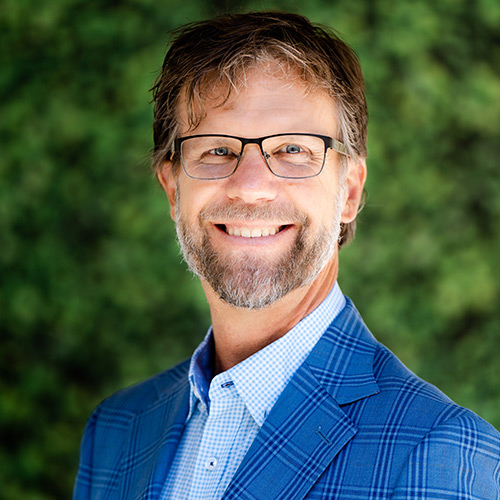An emotional Karina Morales stood on the beach at the border of the United States and Mexico. A towering fence of steel rods rose up before her, but she could still see people on the Mexican side. They saw her, too, and waved. She waved back.
In that moment of shared humanity, other things intruded on Morales, a student at Fresno Pacific University. U.S. Border Patrol officers scanned the scene. A law enforcement helicopter hovered noisily. “I was filled with anxiety even though I wasn’t doing anything wrong,” she says. “I wasn’t at peace.”
Ironically, Morales had come to the San Diego-Tijuana border as part of the Multicultural Peace Collaboration, co-sponsored by FPU’s Center for Anabaptist Studies and West Coast Mennonite Central Committee (MCC). She and 27 others—some from the East Coast, others from foreign nations—traveled this summer from the border to Fresno to learn about the Latino/a immigration story. The students finished up with a closing session at FPU.
By journey’s end, Morales found a measure of personal peace and a reason to be hopeful about the future. But her experience illustrated a truth: peace is a journey, not a place you arrive at.
A junior at FPU, Morales is majoring in intercultural studies. Her parents came from Mexico and settled in Dinuba, where Morales was born. Her father started in the fields but is now a construction worker. Her mother works seasonally in a packing house. Morales is well acquainted with the story of people coming to the United States for opportunity and a better life, and the trip allowed her to engage with others about that story.
Diversity promotes peace
FPU recognized that students of different backgrounds would experience the trip differently, says Darren Duerksen, Ph.D., associate professor and program director of intercultural and religious studies. For students who are not ethnically Latino, visiting sites and hearing stories brought the Hispanic migration and immigration story—particularly in California—into greater focus.
For Hispanic students, Duerksen says, “We wanted them to feel that their experiences and those of their family were validated, particularly when they heard other people talk about similar experiences. It can be incredibly meaningful when they hear and know that others share what their families have gone through.”
The trip brought together people from diverse ethnic, racial and socio-economic backgrounds, including students from Colombia, Nigeria, Zimbabwe and South Korea. They visited, among other places, the César E. Chávez National Monument in Keene and Homeboy Industries in Los Angeles, a nonprofit gang rehabilitation center. It was important for the students to confront the realities faced by Hispanic immigrants, says Dina González-Piña, a trip leader and executive director of West Coast MCC. Mennonite Central Committee is a worldwide ministry of Anabaptist churches, sharing love and compassion in the name of Christ by responding to basic human needs and working for peace and justice (mcc.org). The students—united by their faith in Jesus—learned from one another and from people at the stops on their “journey of justice,” González-Piña says.
‘Brothers and sisters’
This concept of community was vital to the Multicultural Peace Collaboration trip, says Brian Davis, M.A., FPU campus chaplain. “You only begin to understand what’s actually happening when you’re in a community with people—people who are different from you and have different narratives. In the Christian view, these are brothers and sisters in Christ,” Davis says.
Morales found a new narrative—and it changed her perspective—at Homeboy Industries. Before the trip, she viewed gang members as hardened people who didn’t care about hurting others. Then she met a man born into a gang family who tried repeatedly to leave that lifestyle. “He wasn’t in a gang because he wanted to be. It was just the way it was for him,” Morales says.
Equally significant, she found empathy from other students on the trip for the struggles faced by Latin American immigrants. “I already knew about some of the harsh realities, and I had all these negative feelings about why it’s that way. Why must people suffer just to get the opportunity to live a better life?” Morales says. “But on the trip, I was able to release a lot of the heaviness in my heart. Just being surrounded by people who genuinely wanted to learn and make a difference gave me hope.”
Love and respect
Another FPU student on the trip—sophomore nursing major Betsy Olvera—found encouragement in talking with a white student from Philadelphia and seeing her begin to grasp what Latino/a immigrants must overcome. “We definitely grew connections with the other people on the trip,” Olvera says. “You got to hear and understand another person and find peace with them.”
Jocelyn Madrigal (BA ’22) was also on the trip. “I always thought only my people cared about my people’s problems: immigration, issues at the border and us being marginalized here,” she says. But the trip convinced her otherwise. “I walked away knowing that so many other people care about us and our issues, want to learn and want to take that back to their communities.”
Madrigal, a campus life mentor for Tulare-Kings Canyon Youth for Christ, wants to participate in next year’s Multicultural Peace Collaboration trip to Oklahoma. It will explore the Native American experience. (In 2021, participants went to the South to focus on African Americans and the civil rights movement.) “I think the fact that Fresno Pacific offers these opportunities is wonderful,” Madrigal says. “We can come back from these trips to love and respect one another.”
PHOTO: On the fifth day of their pilgrimage, Alecia Espinosa, Karina Morales, Sarai Uriostegui and Betsy Olvera, participants in the Multicultural Peace Collaboration learning tour, sit at the fountain that is part of the Cesar E. Chavez National Monument. (MCC photo/Jessica Chisolm).

